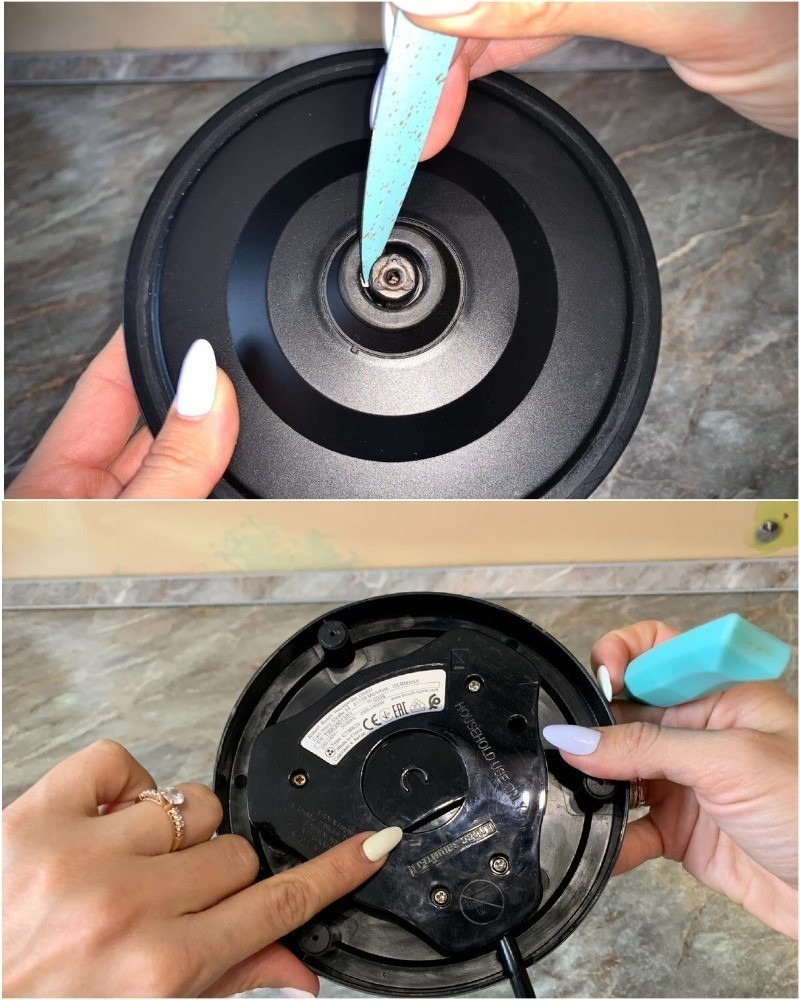- I disconnected the kettle from the mains.
- I turned the stand over and found a small hole in the middle.
- Using a knife, I picked at the contact group (the metal pieces inside) and heard a characteristic click. This meant that the metal pieces inside were in place.
ADVERTISEMENT
Is your kettle broken? Don’t rush to buy a new one! Perhaps you can fix it yourself, like I did.
Just the other day I was cleaning my kettle from scale. I cleaned it the old, well-known way – with citric acid.
I dissolved a pack of citric acid in a teapot, boiled it three times, and washed everything well. The result: a perfectly clean teapot, like new. Just look at how beautiful it is!
The next morning I decided to make coffee. I turned on the kettle – silence in response. It didn’t work. I was very surprised. Could it be that the citric acid had corroded something inside the kettle, and that’s why it broke?!
My husband wasn’t home, there was no one to look… I was already mentally prepared to buy a new kettle, but this one wasn’t old either – only about a year in use. This made me doubly upset…
ADVERTISEMENT
ADVERTISEMENT
I decided to read on the Internet what could have happened. I came across one useful video (many thanks to the author).
I did the following:
I turned on the kettle – it worked! HURRAY!
I don’t know if it was some kind of fuse or protective mechanism that worked, or maybe the contacts just got bent. I read a lot of comments online from people with a similar problem.
I can imagine how many people threw out their teapots because of this or paid money for repairs. Although it is easy and simple to do yourself!
ADVERTISEMENT
ADVERTISEMENT
